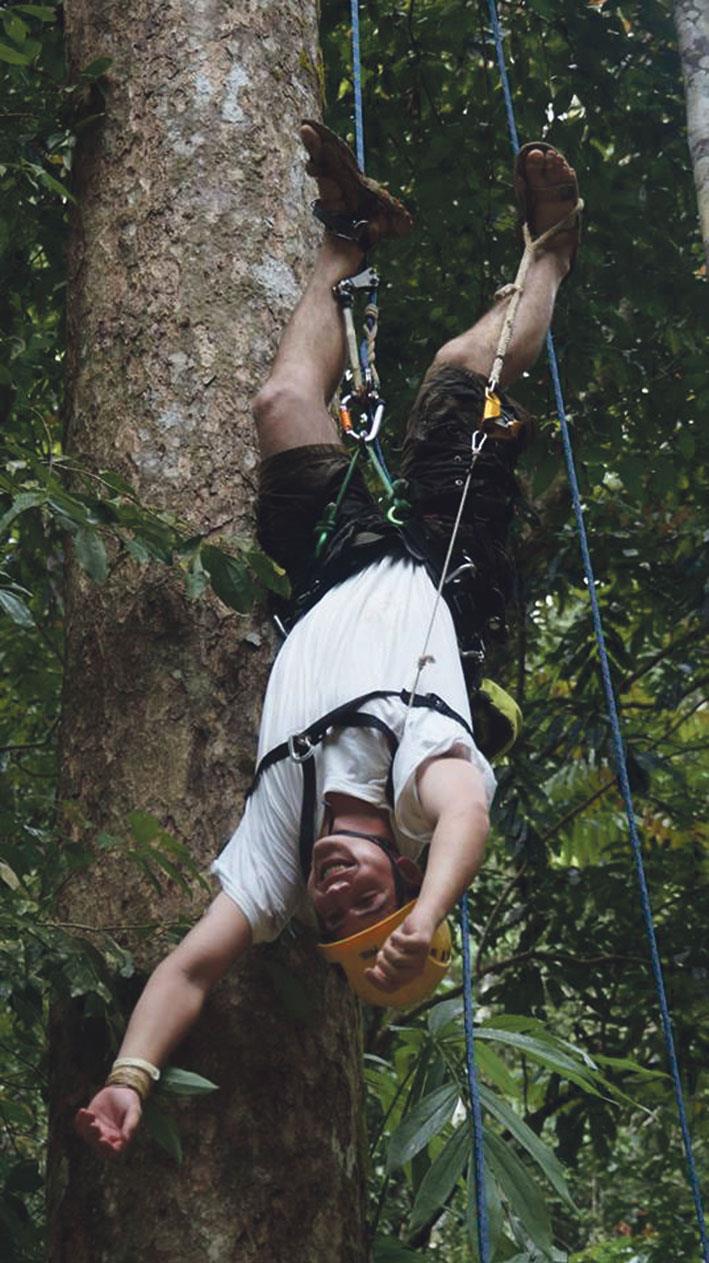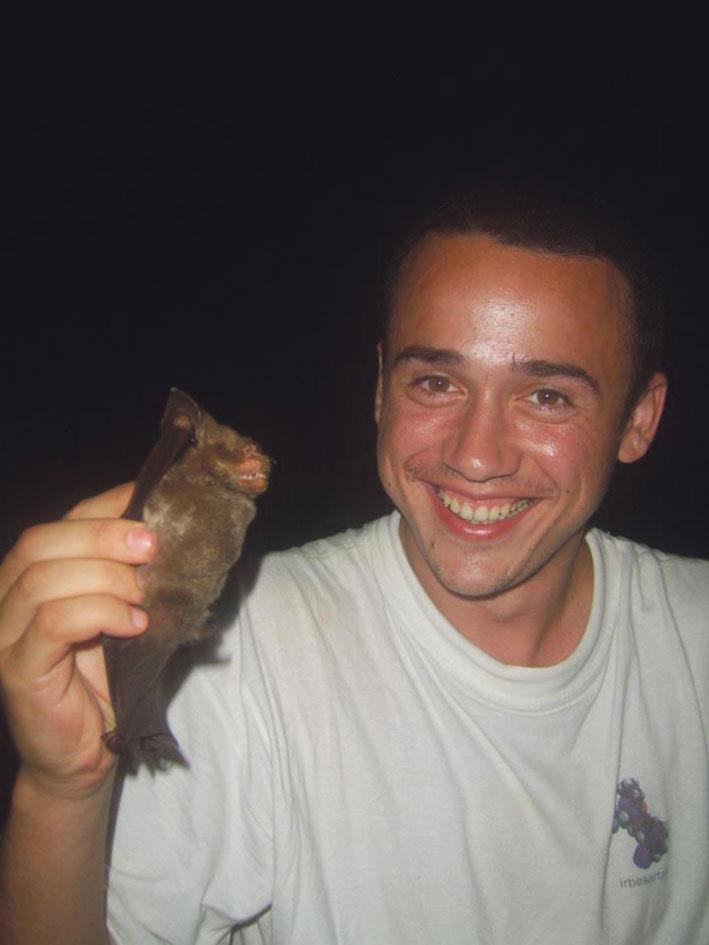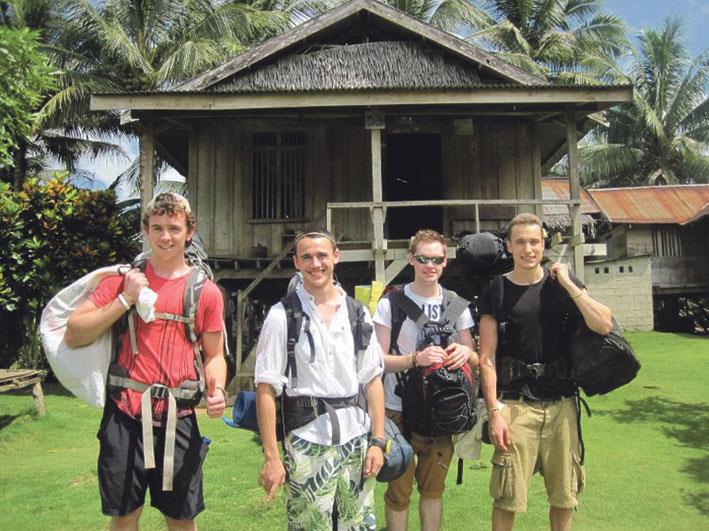Nathan Adams attended his first Operation Wallacea wildlife conservation expedition to Indonesia in the summer of 2011. Just two years later, at the age of 21, he was offered a position as a fully fledged bat scientist with Operation Wallacea and then opened his own office in Malta in 2015.
This summer alone Nathan’s office is organizing expeditions for 150 students and educators to biodiversity hotspots across the world to taking part in real-world scientific wildlife expeditions with Operation Wallacea.
Nathan explains to The Malta Independent how such a once-in-a-lifetime experience led him to opening his office to encourage 100s of volunteers to travel the world, meeting his wife, moving to Canada and landing a job with the United Nations Association as a Senior Project Officer.
1) What is Operation Wallacea Malta?
Operation Wallacea Malta organises international wildlife conservation expeditions for Maltese and Gozitan Secondary School, Sixth Form and University students and teachers to biodiversity hotspots across the world!
Both students and teachers are taught scientific methods on how to research wildlife that can be applicable to students’ O-level, A-level and tertiary material. This once in a lifetime opportunity provides students and volunteers with the opportunity to apply their knowledge out of the classroom and in the field with professional scientists to collect data that is published in peer-reviewed scientific journals. These expeditions also strengthen participants’ CVs, providing innumerable academic and career-related opportunities. Between 2015-2018, over 160 Maltese and Gozitan participants have attended Operation Wallacea expeditions, and this summer alone over 150 volunteers will be going to remote jungles, savannahs and scuba diving at coral reefs in countries such as Madagascar, Guyana, Peru, Romania, Croatia, Indonesia, South Africa and Honduras!

2) What did you gain from your own expeditions with Operation Wallacea?
In 2009 I enrolled at the University of Malta as a science student, where I founded the student organisation Youth For the Environment and was the first president for two consecutive terms. My first Operation Wallacea expedition was in the summer of 2011, where I spent a summer in Indonesia working in tropical rainforests and taking part in research projects mainly focusing on reptiles, bats, amphibians, birds and monkeys. Whilst there I was I also become a qualified Advanced Open Water scuba diver. I was hooked and attended again the follow three summers!
By the age of 21 I learned how to speak Indonesian, how to handle/trap/record bats’ echolocation patterns and was also offered a job with Operation Wallacea to be their fully-fledged Bat Scientist (all before having my undergraduate degree!).
By 2013, I finally took up the offer from Operation Wallacea as a bat scientist and all the data I collected was published in a scientific peer-reviewed journal in which I was named co-author! The journal was published in 2017, and the paper was titled ‘Lowland rainforest bat communities of Buton Island, Southeast Sulawesi, including new regional records’.
In 2014 I also met my wife Katie who was working as a butterfly scientist for the first time, we eventually married and had our first child Aeva in 2015 and our second daughter Luna in 2017.

3) What challenges and accomplishments did you face setting up the Operation Wallacea Malta office?
Starting the office was both challenging and rewarding! I was still studying at the University of Malta and was trying to convince educators, schools and parents to enrol students to join these worldwide biodiversity conservation expeditions, which were completely unheard of at the time. It was only after two years of setting up my office from the ground up and turning my passion for volunteering and travelling into an actual career, did I manage to convince three Sixth Form schools to join Operation Wallacea. Students and teachers from Giovanni Curmi Higher Secondary School, St Martin’s College Sixth Form and Sir M.A Refalo Sixth Form went to Transylvania for two weeks, where they applied material they learnt in the classroom with professional scientists in the field, and were trained as research assistants to conduct research on bears, bats, birds and butterflies to mention a few.

4) 2018 seems to have been a year full of achievements for Operation Wallacea, any future plans for 2019?
The results of those Sixth Forms students who had attended the expeditions turned out so well, that last year more Sixth Forms joined. That is when I decided to take the plunge to even involve secondary school students to join on the expeditions, something which is not available to other students from across the world.
I couldn’t believe the excellent reception when I managed to convince more than 13 secondary schools and five sixth form schools to participate! I currently live in Canada, however, when I now come down to Malta every November for just two weeks I am consistently fully booked without a second to spare, with three to five presentations per day, presenting to well over 2000 students and teachers in each visit in all!
By then, my work had caught the attention of the Minster for Education and Employment Evarist Bartolo and Minster for Environment, Sustainable Development and Climate Change Jose’ Herrera, who had organised a ceremony to meet students and teachers that have attended the expeditions that my office organizes and to endorse Operation Wallacea Malta. At the ceremony, dozens of volunteers were congratulated and given certificates of recognition from the government for their achievements.
Now, I look back and cannot be more humbled at how much interest and support there is in Malta for these expeditions. I have turned my passion for wildlife and volunteering into my career and now over 150 volunteers this summer will be joining Operation Wallacea expeditions; I hope that they will take back just as much as I have. My next goal is to involve all schools and Maltese ENGO’s on board to help foster Malta’s next generation of environmental elites, who will ultimately be tomorrow’s leaders.
Interested in Operation Wallacea (www.opwall.com)? Anyone who wishes to contact Nathan Adams can do so on [email protected]

Andrew Agius went to Honduras, on an island called Utila
‘I would definitely recommend Operation Wallacea to others, it’s a great way to travel and at the same time have some form of purpose to your travels. It’s a very immersive experience, the site I went to was a marine site, because that is what I am most interested in from a biology perspective.
I had obtained my Divemaster qualification, I was diving three times a day and was able to even guide some of the dives, seeing stingrays, eagle rays, coral, colours and sea every day - it was fantastic. You are completely immersed in the natural environment, learning, observing and contributing to the research work that is being carried out.
I brought back with me an even greater love of the sea and everything in it (except the plastic, I guess). A desire to see much more of central and south America, and a determination that my future career will definitely be related to the sea, and to the continued protection of the natural biodiversity.
Arnold Sciberras : Malta Herpetological Society will be going to Indonesia with two groups
‘Next June I will be leading as a project leader on an expedition in Indonesia, and I am also a herpetologist (a specialist in reptiles) and will be taking two groups of people. One group will be members from the Malta Herpetologist Society, a society I set up myself for those who are interested in the study and conservation of Maltese reptiles. I also own an animal hospital and research centre, Animal Kingdom, where a group of vets who have an interest in wildlife conservation will also be joining us. Both groups are interested in the conservation and research of reptiles and amphibians.
Operation Wallacea is an opportunity not just for students, but also for NGOs, like Malta Herpetological Society and people who have a passion for reptiles, to work hands-on in the field. Also collecting research for the conservation of such reptiles and gaining knowledge which we can then apply when researching Mediterranean and local reptiles.’
Julia Aquilina: Junior Doctor at Mater Dei is going to Guyana, South America this summer to conduct wildlife research in the jungle
‘What enticed me to apply? Everything about the trip is attractive! The location looks wonderful, and I have always wanted to visit the rain forest, especially one such untouched by mankind as the one in Guyana. I’m looking forward to being surrounded by diverse creatures and species, and to get opportunity at experiencing research that would be impossible to carry out in Malta. This is the perfect opportunity and the timing couldn’t be more right; delaying it would just be procrastination!